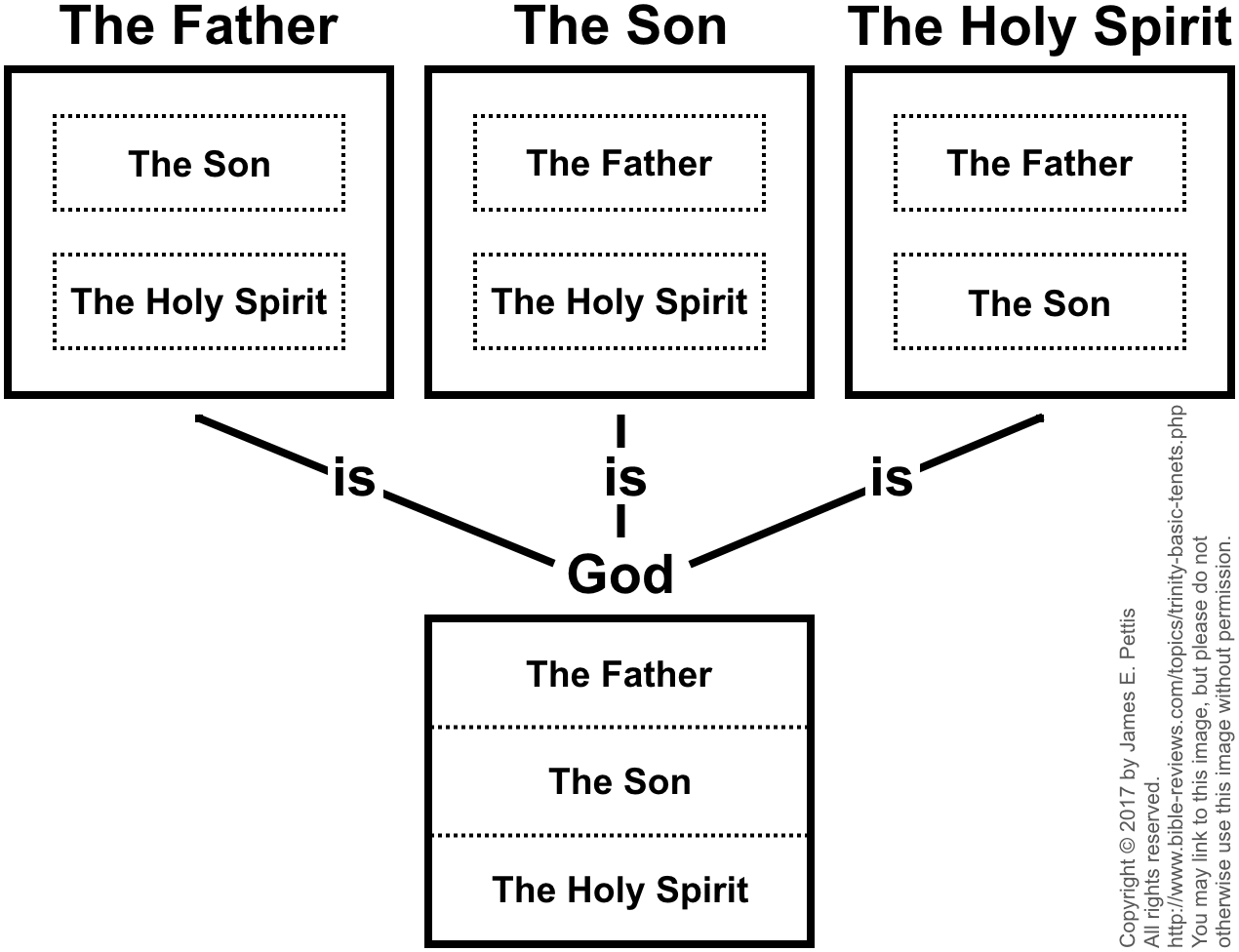The Doctrine of Trinity
Basic Tenets (Page 2)
Introduction
Below I list and then explain the most basic and important tenets of the Christian doctrine of trinity. Once you learn these few, simple, basic tenets you will have a better understanding of the doctrine of trinity than most of your acquaintances.
The Basic Tenets (Definition)
- The trinity God is one and only one God.
-
The trinity God exists as the eternal union of the three Divine Persons, namely:
- The Father,
- The Son (Jesus),
- The Holy Spirit.
- The three Divine Persons are distinct.
The Basic Tenets (Explanation)
1. The trinity God is one and only one God.
The most important thing to realize is that according to the doctrine of trinity, the trinity God is one and only one God. The doctrine explicitly teaches that the trinity God is one (not three) gods. Anyone who claims that the doctrine of trinity teaches otherwise is directly contradicting what the doctrine explicitly teaches.
2. The trinity God exists as the eternal union of the three Divine Persons.
- The three Divine Persons have always existed.
- The three Divine Persons will always exist.
- The three Divine Persons have always been united as God.
- The three Divine Persons will always be united as God.
-
The three Divine Persons have never been separated, have never been disunited.
1. The trinity God is one and only one God.
2. The trinity God exists as the eternal union of the three Divine Persons.
- The Father is the one and only God.
- The Son (Jesus) is that very same God.
- The Holy Spirit is that very same God.

- God is the eternal union of the three Divine Persons.
- The Son and the Holy Spirit are in (within) the Father. Therefore: the Father is in and of himself God.
- The Father and the Holy Spirit are in (within) the Son. Therefore: the Son is in and of himself God.
- The Father and the Son are in (within) the Holy Spirit. Therefore: the Holy Spirit is in and of himself God.
3. The three Divine Persons are distinct.
- The Father is not the Son. (They are not the same Person.)
- The Father is not the Holy Spirit. (They are not the same Person.)
- The Son is not the Holy Spirit. (They are not the same Person.)
- The three Divine Persons are not merely three aspects of God, not merely three aspects of one person. They are distinct Persons.
References
Please note that all links in this section except for the Return to Text buttons will open a new browser page or tab so that you will not lose your place in this article.
- “The dogma of the Holy Trinity.” The Catechism of the Catholic Church. 2nd ed., United States Catholic Conference, 1994, pp.66-67, tenets 253-256. Retrived 2017 July 27 from http://ccc.usccb.org/flipbooks/catechism/index.html#66/z
- Hopko, Fr. Thomas. “The Holy Trinity.” The Orthodox Faith. Vol. I. St. Vladimirs Seminary Press, 2016. The Orthodox Church in America. Retrieved 2017 July 27 from https://oca.org/orthodoxy/the-orthodox-faith/doctrine-scripture/the-holy-trinity/the-doctrine-of-the-holy-trinity
- “The Holy Trinity.” The Doctrine of the Orthodox Church: The Basic Doctrines. Decani Monastery, Kosovo. Orthodox Christian Information Center. Retrieved 2017 July 27 from http://orthodoxinfo.com/general/doctrine1.aspx#Holy%20Trinity